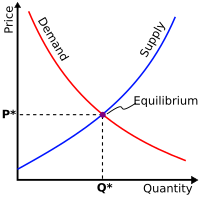Lucas critique

The Lucas Critique is a way of thinking about how changes in the rules of an economy can affect the decisions that people make. It is named after economist Robert Lucas. The Lucas Critique suggests that when a government changes economic policies, people may change their behaviour in response to those changes. This means that the impact of the policy change may be different than what was expected. For example, a government may raise taxes to pay for a new school, but people may decide to work less because they have less money to spend. So, even though the government intended to raise money to pay for the new school, they may not get as much as they had hoped. This means that the government may need to be careful when making economic policy changes, because people can respond differently than was expected.
Related topics others have asked about:
